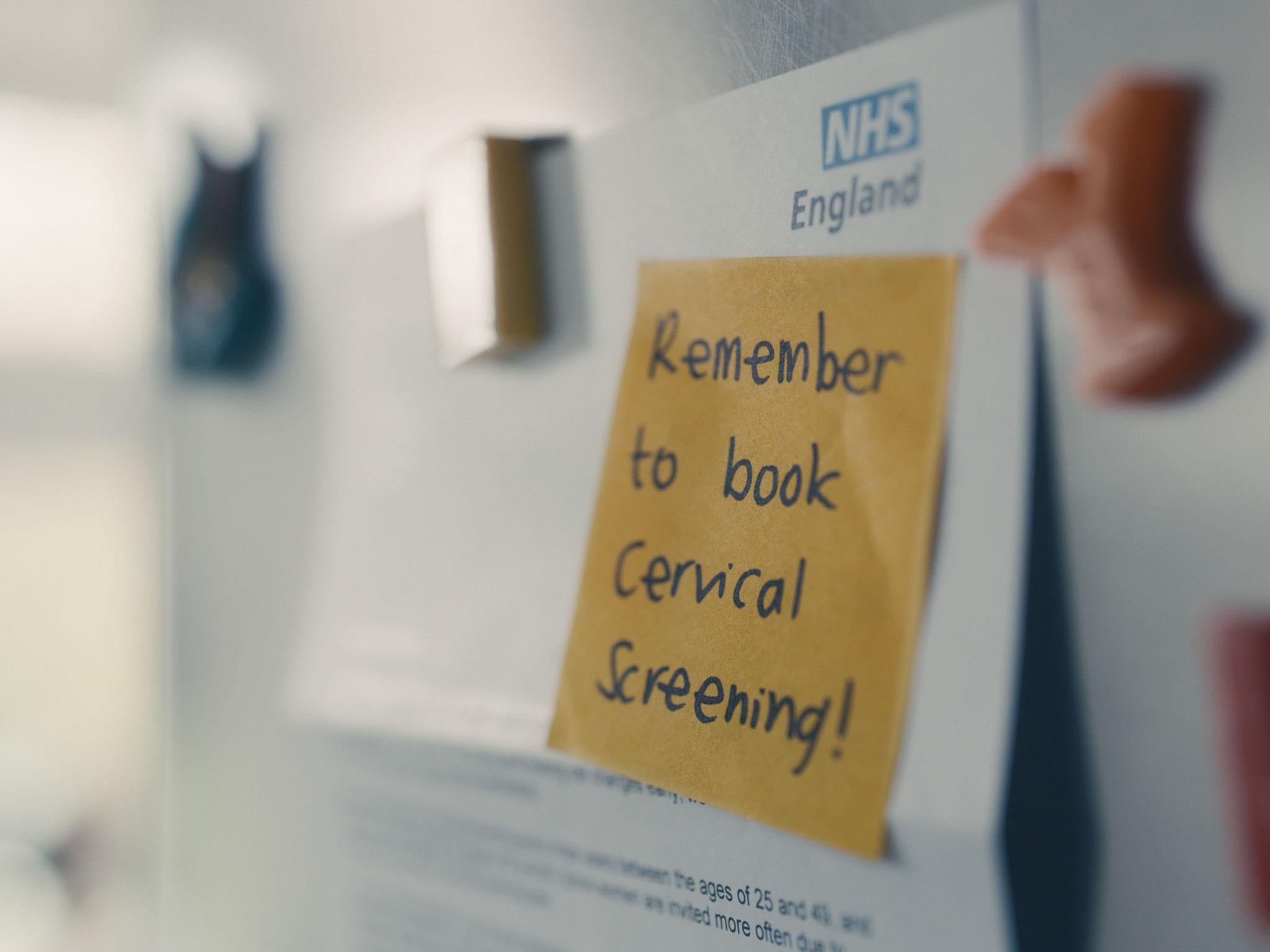Lesbians and bisexual women at risk from ‘dangerous myth’ they cannot get cervical cancer, warns NHS
Report suggests one in five lesbian, gay and bisexual women never been for test

Your support helps us to tell the story
From reproductive rights to climate change to Big Tech, The Independent is on the ground when the story is developing. Whether it's investigating the financials of Elon Musk's pro-Trump PAC or producing our latest documentary, 'The A Word', which shines a light on the American women fighting for reproductive rights, we know how important it is to parse out the facts from the messaging.
At such a critical moment in US history, we need reporters on the ground. Your donation allows us to keep sending journalists to speak to both sides of the story.
The Independent is trusted by Americans across the entire political spectrum. And unlike many other quality news outlets, we choose not to lock Americans out of our reporting and analysis with paywalls. We believe quality journalism should be available to everyone, paid for by those who can afford it.
Your support makes all the difference.Up to 50,000 women who have sex with women are at risk from the “dangerous myth” that gay and bisexual women cannot get cervical cancer, the NHS has warned.
NHS England said the idea that lesbians, bisexuals and other women who have sex with women cannot contract the human papillomavirus (HPV) – which causes most cases of cervical cancer – is incorrect.
Around 80 per cent of people will get HPV at some point in their lives.
It can be passed between women – even if neither has ever had sexual contact with a man. This is because HPV is spread by skin-to-skin contact in the genital area, which can include sexual touching, sharing sex toys, oral and penetrative sex.
Cervical cancer charities have previously issued warnings that health professionals or others sometimes incorrectly inform women they do not need cervical screening.
A report into attitudes to cervical screening among lesbian, gay and bisexual women in the northwest of England found one in five lesbian, gay and bisexual women have never been for a test.
Although the majority were aware they needed to go for cervical screening, eight per cent thought lesbian, gay and bisexual women did not need the test or did not know if it was required.
Some 21 per cent thought lesbian gay and bisexual women were at lower risk of cervical cancer compared with heterosexual women. More than 600 women were surveyed.
The NHS in England said this could mean up to 50,000 lesbian, gay and bisexual women had never gone for cervical screening.
Dr Michael Brady, NHS England’s LGBT+ health adviser, said: “The misleading information that gay and bisexual women are not at risk of this disease is one of the most dangerous myths around, because it has created a screening gap for thousands, which is a major concern for our community.
“Let’s be clear: cancer does not discriminate. If you have got a cervix, you can get cervical cancer, and as cervical cancer is preventable, people should take up their regular screening appointments.”
He said NHS screening services need to be inclusive of lesbian, gay, bisexual, trans and non-binary people – adding he was “delighted” to have been asked to help the NHS address these issues.
Professor Anne Mackie, Public Health England’s director of screening, said: “We encourage anyone with a cervix between the ages of 25 and 64 to go for regular cervical screening.”
Robert Music, chief executive of Jo’s Cervical Cancer Trust, said: “Cervical cancer can affect anyone born with a cervix, regardless of gender or sexual identity. Addressing harmful myths, such as cervical screening being less important for the LGBT community, must be urgently addressed.”
Public health minister Seema Kennedy added: “No woman’s life should be put at risk because of myths and misinformation.”
Smear test attendance is plummeting, with figures showing an increasing number of women failing to attend due to embarrassment.
Attendance is currently at its lowest in 19 years in England – with a 10-year low in Scotland and Wales.
Cervical screening, commonly referred to as a smear test, helps to pick up early signs of cell changes in the cervix which can turn into cancer. Figures from last year showed just over 71 per cent of all women aged 25 to 64 had been screened at regular intervals.
Join our commenting forum
Join thought-provoking conversations, follow other Independent readers and see their replies
Comments